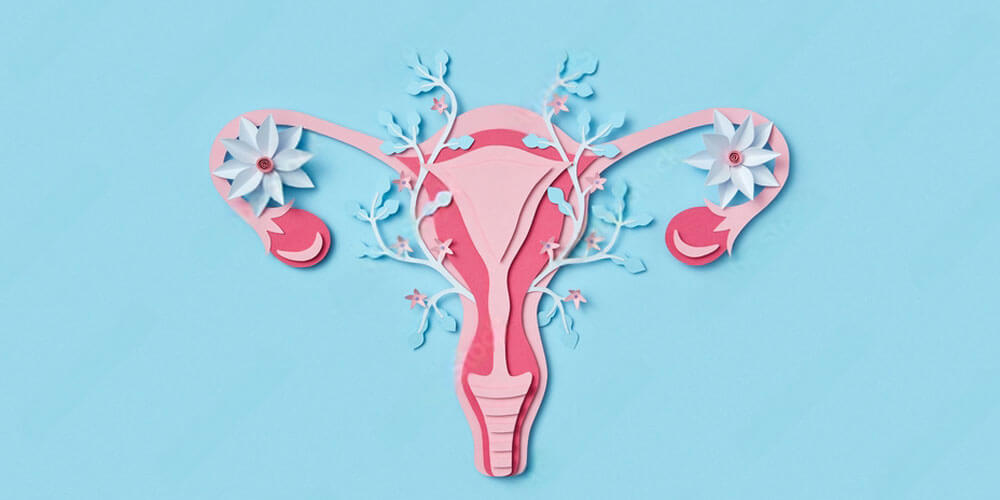Women who experience hormonal imbalances may experience a variety of health problems, such as infertility, weight gain, and irregular periods. One of the most prevalent and frequently misdiagnosed of them is Polycystic Ovary Syndrome (PCOS). Hormonal imbalance is a more general phrase that describes disturbances in the body's endocrine system, whereas PCOS is a specific condition. Many women find it hard to tell the difference between the two, which causes them to become confused and put off getting the proper care. This article discusses the main distinctions between PCOS and general hormonal abnormalities, as well as their symptoms, causes, and when to seek the diagnosis and treatment of the top doctor in Hyderabad.
Understanding PCOS
Women of reproductive age are susceptible to the hormonal condition known as polycystic ovarian syndrome, or PCOS. Excess androgen (male hormone) levels, irregular menstruation periods, and ovarian cysts are its hallmarks. PCOS has no established etiology, however, lifestyle factors, genetics, and insulin resistance are frequently involved.
- Unpredictable, extended, or skipped menstrual cycles are examples of irregular periods.
- Excess Hair Growth (Hirsutism): When androgen levels rise, facial and body hair grows.
- Oily Skin and Acne: Hormonal changes lead to outbreaks, particularly on the back, chest, and face.
- Gaining Weight and Having Trouble Losing Weight: Insulin resistance is frequently linked to PCOS, which makes weight management difficult.
- Thinning Hair or Hair Loss: Hormonal imbalances causing male-pattern baldness.
- Ultrasonography can identify ovarian cysts, which are tiny, fluid-filled sacs on the ovaries.
- Ovulation problems brought on by hormonal imbalances are known as infertility.
What is the hormonal imbalance?
An excess or deficiency of a hormone in the bloodstream is known as a hormonal imbalance. Stress, bad diet, thyroid issues, menopause, and diseases like diabetes can all contribute to it. In contrast to PCOS, which primarily affects reproductive hormones, a hormonal imbalance can impact the thyroid, adrenal glands, and pancreas, among other glands.
- Unexpected Weight Gain or Loss: Changes in insulin or thyroid function may affect metabolism.
- Chronic Fatigue: Low vitality, frequently caused by thyroid problems or adrenal fatigue.
- Mood swings and anxiety: Depression, anger, and anxiety can all be caused by hormonal changes.
- Sleep disturbances include excessive drowsiness or insomnia brought on by cortisol and melatonin abnormalities.
- Women going through menopause frequently experience hot flashes and night sweats as a result of estrogen reduction.
- Skin problems include rashes, dry skin, or acne brought on by an estrogen-progesterone imbalance or thyroid malfunction.
- Irregular Menstrual Cycle: This is another sign of PCOS, but it can also be caused by changes in progesterone or estrogen that are not connected to ovarian cysts.
- Hormone levels (androgens, estrogen, progesterone, thyroid hormones, and insulin) are measured by blood tests.
- To look for ovarian cysts, a major sign of PCOS, use ultrasound.
- Glucose and Insulin Testing: To identify insulin resistance, which is frequently linked to PCOS.
- Lifestyle Changes for PCOS Treatment: Weight control, a balanced diet, and regular exercise.
- Medications include insulin-sensitizing pharmaceuticals, anti-androgen meds, and birth control pills to control periods.
- Fertility Treatments: Ovulation-inducing drugs may be recommended if pregnancy is the desired outcome.
- Diet and Nutrition: Limiting sugar consumption and consuming foods that balance hormones.
- Stress reduction techniques include yoga, meditation, and healthy sleep schedules.
- Medication: Cortisol control, thyroid drugs, or hormone replacement therapy (HRT).
- Unexplained weight gain or loss
- Severe acne or excessive hair growth
- Persistent irregular menstruation periods Abrupt mood swings, exhaustion, or sadness
- Infertility
How to Get Diagnosed?
Accurate diagnosis is crucial because PCOS symptoms and those of typical hormonal abnormalities overlap. Consult the top endocrinologist or gynecologist in Hyderabad if you are having irregular periods, weight swings, or changes in your skin and hair. Typically, the diagnosis consists of:
When Should I See a Physician?
If you have any of the following symptoms:
Hormonal abnormalities and PCOS have many symptoms, making it challenging to tell them apart. However, while hormonal imbalance can be caused by a variety of circumstances, PCOS is a particular syndrome associated with insulin resistance and high testosterone. In order to control symptoms and avoid consequences, early diagnosis and treatment are essential. To receive individualized care and improve your hormonal health, speak with a leading gynecologist or endocrinologist in Hyderabad if you are having problems with your hormones.




